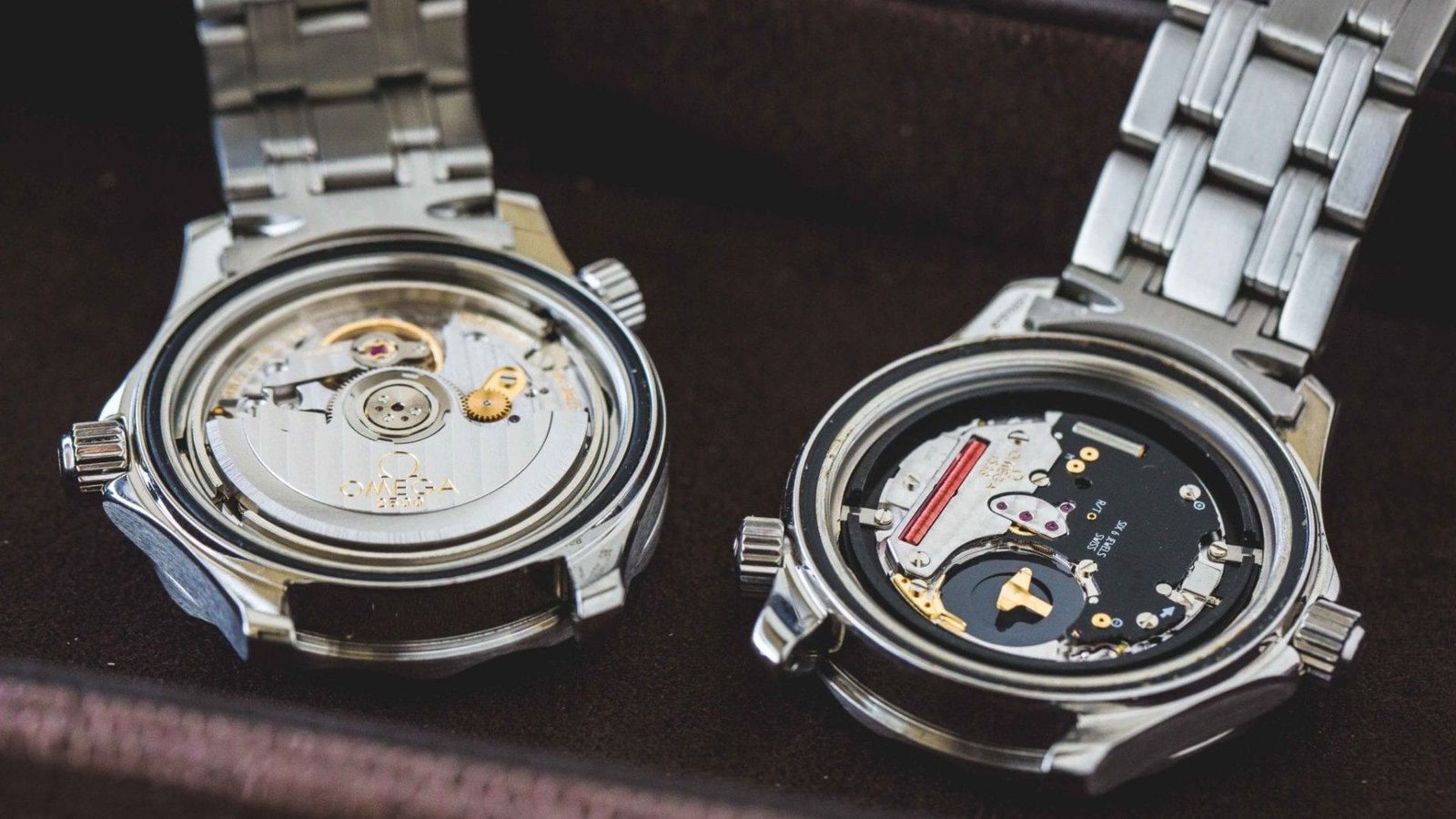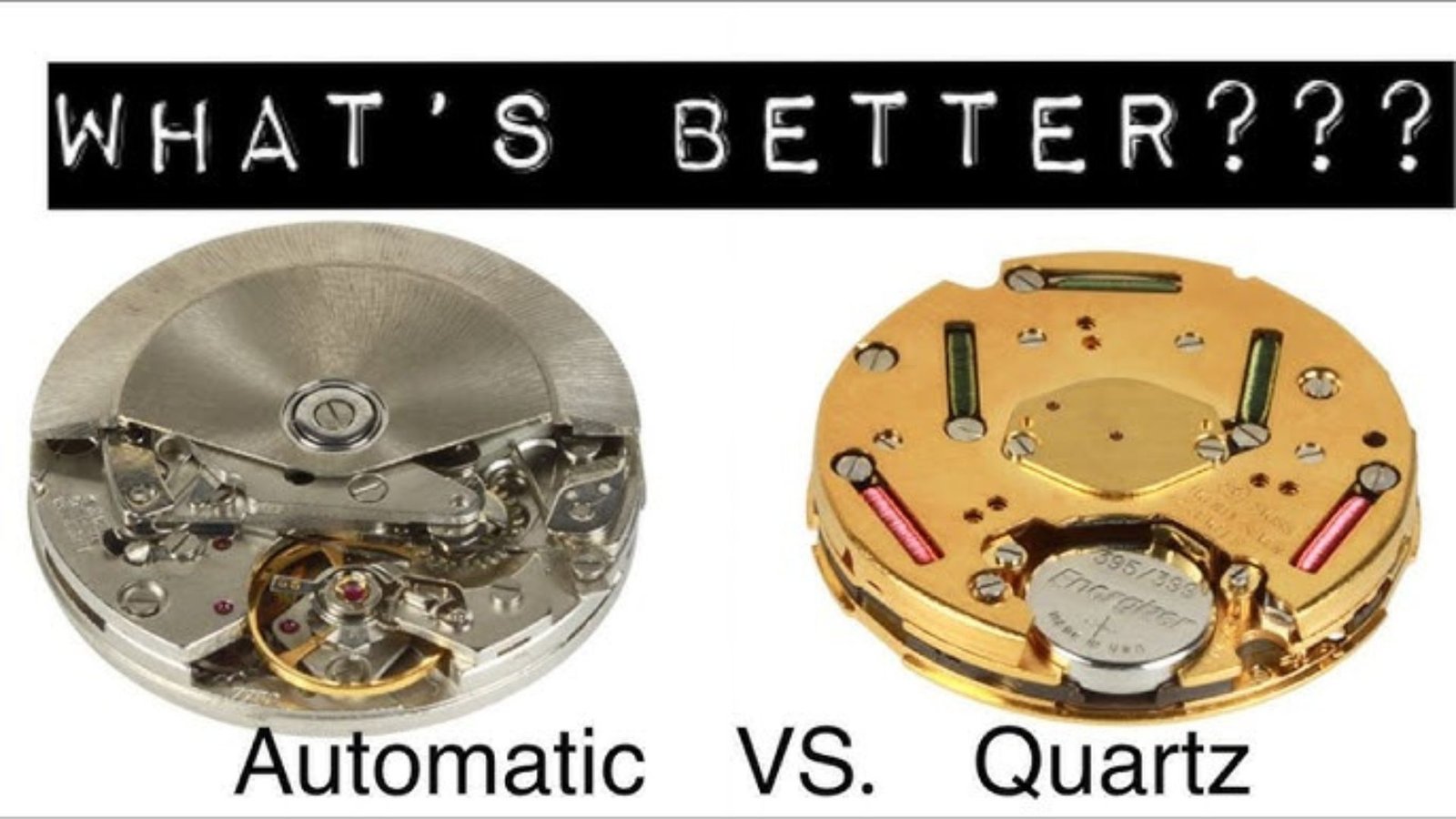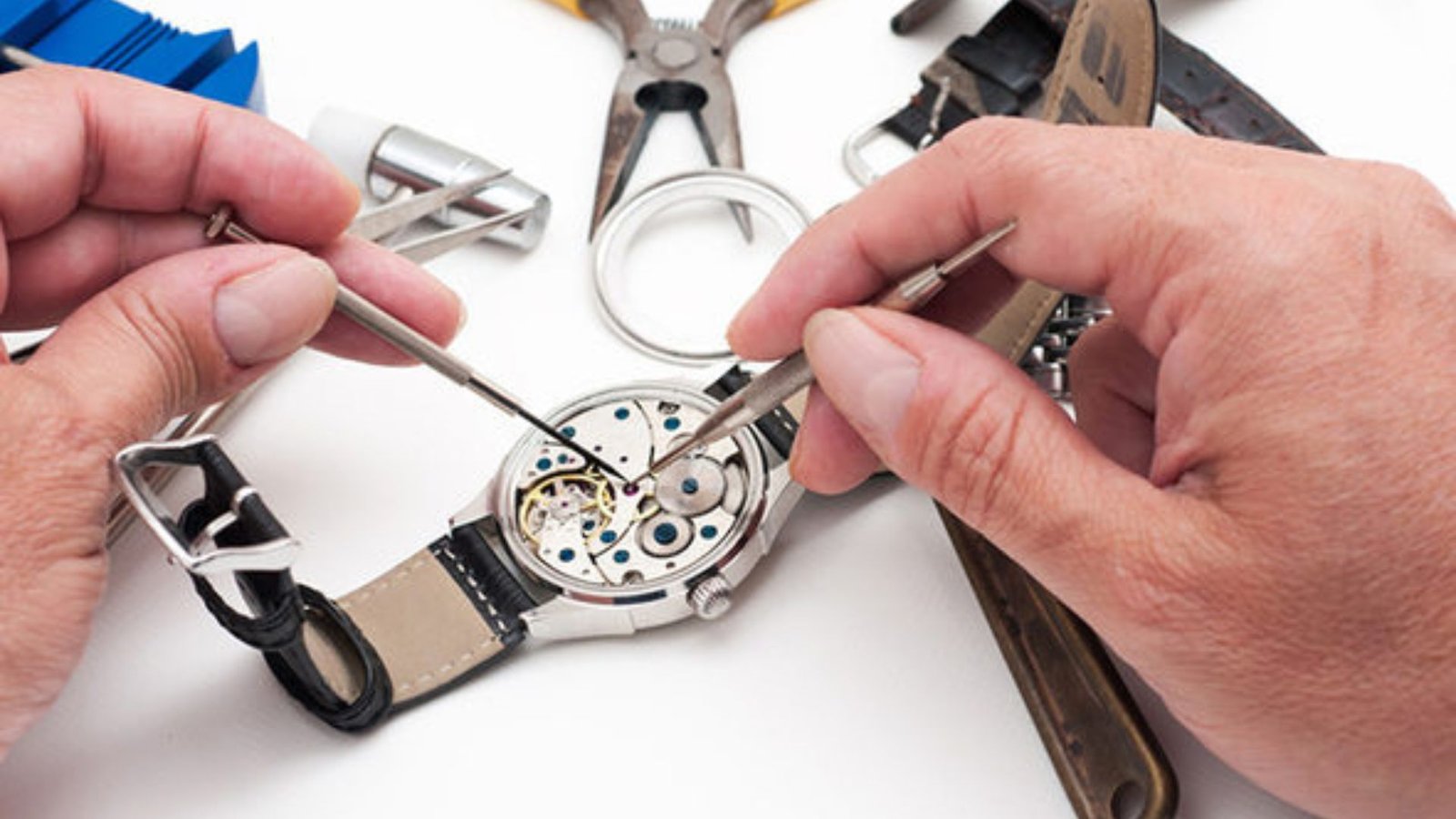When it comes to choosing a watch, understanding the differences between automatic and quartz watch mechanisms is crucial. Both types of watch mechanisms offer unique benefits and cater to distinct preferences. In this post, we will thoroughly explore the characteristics of automatic and quartz watch mechanisms. This guide will help you make a well-informed decision for your next timepiece.

What Are Automatic Watch Mechanisms?
Firstly, let’s discuss automatic watch mechanisms, also known as self-winding mechanisms. These watches harness the movement of your wrist to wind the watch. Specifically, they use a rotor that spins as you move your arm. This spinning action, in turn, winds the mainspring, which stores the energy required to power the watch. Therefore, automatic watches do not need a battery, making them a favored choice for enthusiasts who appreciate traditional craftsmanship.
Advantages of Automatic Watch Mechanisms
Moreover, automatic watches come with several advantages. They are often considered more prestigious due to their intricate design and craftsmanship. In addition, automatic mechanisms generally have a longer lifespan compared to quartz movements since they don’t rely on battery changes. Additionally, many collectors and aficionados value the continuous motion of the rotor, which provides a tactile connection to the watch.
What Are Quartz Watch Mechanisms?
On the other hand, quartz watch mechanisms operate differently. They use a battery-powered quartz crystal to keep time. When an electrical current passes through the crystal, it vibrates at a precise frequency. Subsequently, these vibrations are converted into accurate timekeeping signals by the watch’s electronics. Therefore, quartz watches are known for their accuracy and require minimal maintenance.
Benefits of Quartz Watch Mechanisms
Furthermore, quartz watches offer numerous benefits. They are generally more affordable when compared to automatic watches, making them accessible to a broader audience. Additionally, quartz mechanisms need less maintenance, requiring only occasional battery replacements. Moreover, quartz watches are renowned for their accuracy, with many models maintaining precise time over extended periods.
Comparing Automatic and Quartz Watch Mechanisms
When comparing automatic and quartz watch mechanisms, several factors come into play. Each type of mechanism presents unique characteristics and appeals to different preferences.
Accuracy and Precision
Firstly, quartz watch mechanisms are renowned for their accuracy. They can maintain precise time with minimal deviation, which is ideal for those who value exact timekeeping. In contrast, automatic watches, while generally accurate, may experience slight variations. These variations can be due to factors such as wrist movement and the need for regular winding.
Maintenance and Longevity
Regarding maintenance, quartz watches require less effort. For instance, you only need to replace the battery periodically. On the other hand, automatic watches demand more care. Specifically, automatic watches need regular winding and occasional servicing to ensure their longevity. Additionally, over time, automatic watches might suffer from wear and tear, which can impact their performance.
Cost and Craftsmanship
Moreover, there is a significant difference in cost and craftsmanship. Automatic watches often come with a higher price tag due to their complex mechanisms and traditional craftsmanship. Conversely, quartz watches are more budget-friendly, providing reliable timekeeping at a lower cost. However, enthusiasts might prefer the craftsmanship and mechanical complexity of automatic watches, despite the higher price.
Which Watch Mechanism is Right for You?
Ultimately, the choice between automatic and quartz watch mechanisms depends on your personal preferences and requirements. Conversely, if you prioritize accuracy, affordability, and low maintenance, a quartz watch could be more suitable.
Consider Your Lifestyle
When making your decision, consider your lifestyle and how you plan to use the watch. For everyday wear and convenience, a quartz watch may be more practical. However, if you appreciate the artistry of watchmaking and are willing to invest in a high-quality timepiece, an automatic watch might be worth the investment.
Precision in Craft and Play
Just as craftsmanship and attention to detail define luxury timepieces, the same precision is now expected in digital entertainment. Platforms offering online slots in canada exemplify this, blending design and technology to deliver immersive gaming experiences. Much like watch collectors seek the finest mechanics, players today look for seamless, trustworthy platforms. The pursuit of excellence unites both worlds in surprising ways.
Conclusion
In conclusion, both automatic and quartz watch mechanisms offer distinct advantages, catering to different preferences and needs. While automatic watches provide traditional mechanical charm, quartz watches offer precision and ease of maintenance. By understanding the characteristics of each type of watch mechanism, you can make an informed decision and select the watch that best fits your style and requirements.


